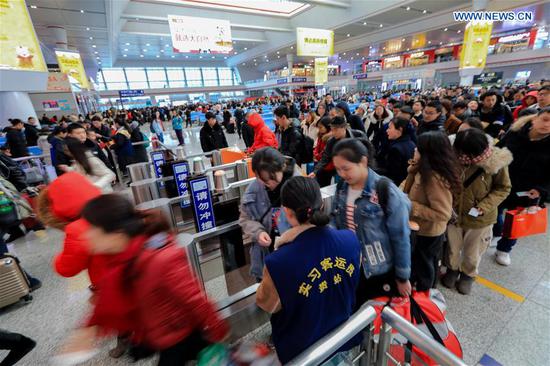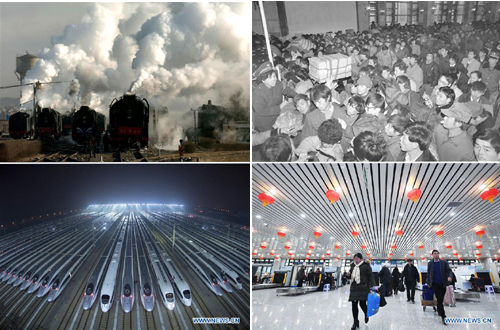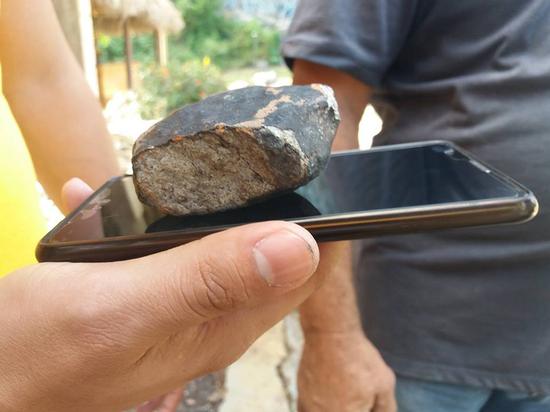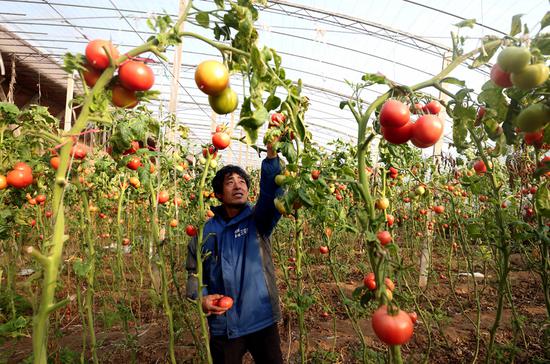But U.S. stores not acting fast enough, scientists and environmentalists say
U.S. citizens use at least one every day- about 380 billion each year. And those plastic shopping bags, made from depletable resources that hardly ever break down, have been finding their way into oceans and marine animals.
Supermarkets and other stores in the United States giving customers plastic bags at checkouts are responding to growing pressure to eliminate the bags. But scientists and environmentalists say they aren't moving fast enough.
Around 12.7 million tons of plastic from landfills and littering are clogging oceans every year, leading to plastic being ingested by hundreds of marine species, according to scientists. The World Economic Forum reports that if plastics continue inundating oceans at the current rate, the water bodies will hold more plastic by weight than fish by 2050.
More than 30 countries have completely or partially banned single-use plastic bags or put a charge on them at the checkout, including the United Kingdom, Morocco, Germany, Canada and Mexico.
Now more U.S. supermarkets are acting to get rid of plastic bags.
On Jan 1, Trader Joe's 474 stores in 43 states and Washington removed them, according to the low-priced and popular chain based in Monrovia, California.
"We are a neighborhood grocery store. And we think it's our duty to take care of where we live. Everything we do to fight pollution plays into that," a spokesman told China Daily.
Trader Joe's said selling reusable bags to customers saved 30 million paper bags in 2017.
Kroger, the largest U.S. grocery store chain, announced in August that it would phase out plastic bags by 2025 at its 2,800 stores in 35 states.
At least 80 U.S. municipalities have banned plastic bags, but only California and Hawaii have statewide bans. New York and neighboring New Jersey state are seeking to ban the bags.
In December, Boston banned grocery stores from giving out plastic bags. The ban is being introduced in stages over eight months.
"Stores can only give reusable bags, recyclable paper bags, or compostable ones with handles to customers. Boston retailers can no longer stock single-use plastic bags with handles," said Stephanie Acquario, a spokeswoman for the city.
Various voices
Various voices also has been raised against the green movement. Plastic bag manufacturers said that banning their products would put thousands of people out of work. Some have termed attempts to place fees for plastic shopping bags just another tax. Others say that bans or fees would hit poor people the hardest.
One of the biggest problems is changing human behavior to get recycling right. Putting a few nonrecyclable items in a recycle bin can jam recycling machinery and render the entire bag unrecyclable to the hauler.
Some supermarkets are going beyond just getting rid of plastic bags. One British grocer, Iceland, said it is committed to becoming plastic-free by changing food packaging to paper.
"It's an issue that we care deeply about," said Richard Walker, the managing director of Iceland."The results of our consumer research are clear. UK consumers believe supermarkets need to make changes in the way they package food and the materials used."
Some supermarkets in Canada, Mexico, Germany, South Africa and now the U.S. have gone even further - establishing zero-waste supermarkets. Consumers bring their own reusable containers to measure out just the right amount of food items and other household products.
The move to ban plastic bags and find other ways to cut waste took on new pressure globally when China announced in 2018 that it would stop taking the world's trash.
For the past 25 years countries like the U.S., Canada, and the UK, have been exporting massive amounts of plastic to China instead of recycling it.
China has taken 106 million tons of the world's plastic- 45 percent of the entire globe's total - since 1992, according to the United Nations Comtrade Database.
In 2017 China enacted the National Sword policy, which banned the import of plastic waste to protect the public's health and the environment.
"China's policy has had a huge impact across the globe. It's starting a conversation about why we don't recycle more. The U.S. should not rely on China to deal with our waste, we need to find a viable alternative method of dealing with it," said Kate Melges, who leads the development of Greenpeace USA's Ocean Plastics campaign aimed at ending the flow of plastic pollution into the ocean.


















































